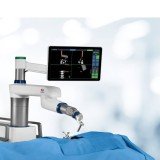Examination and Diagnosis:
As many patients with early-stage colorectal cancer do not experience any symptoms, it is recommended that those with a family history of colorectal cancer begin screening at the age of 25, either every year or every two years. Other groups considered at higher risk of colorectal cancer and are recommended to undergo regular screening include: males over the age of 50, those who are overweight or obese, smokers, and individuals who consume large amounts of alcohol, red meat, or processed meat. Early diagnosis increases chances of recovery and reduces the risk of recurrence.
Screening and Diagnosis of Colorectal Cancer:
- Fecal occult blood test
- Digital rectal examination
- Colonoscopy
- Barium enema
- Carcinoembryonic antigen (CEA) test
Classification and Staging:
- CT scan
- PET/CT scan
- Virtual colonoscopy
Treatment:
Treatment of colorectal cancer depends on the patient's condition, as well as the type and size of the tumor, its location, extent of spread, the patient's age and physical condition, etc. Surgery is the main form of treatment for colorectal cancer. Chemotherapy and radiotherapy are usually used as adjuvant therapies.
Surgery is performed to remove polyps or part of the colon. Open surgery was predominantly used in the past, but the majority of patients today choose a minimally invasive approach if conditions allow, such as minimally invasive surgery or robotic surgery. For patients with larger tumors or whose cancer has metastasized, doctors may recommend preoperative chemotherapy, where radiation therapy or chemotherapy is given to shrink the tumor prior to surgery.
Chemotherapy uses drugs to destroy cancer cells as a way to shrink the size of the tumor or control its growth.
Targeted therapy employs molecular biology techniques that focus on the mechanisms by which cancer cells mutate, proliferate, and spread, in an effort to inhibit their ability to grow and repair.
- Radiation therapy (radiotherapy)
Radiation therapy is the use of high-energy radiation to destroy cancer cells. New systems such as Tomotherapy, a high-speed helical radiation system, direct radiation energy at the tumor, minimizing exposure of energy to normal cells and reducing the risk of possible side effects, such as damage to the small intestine, diarrhea, bloody stool, and poor absorption of food.




































